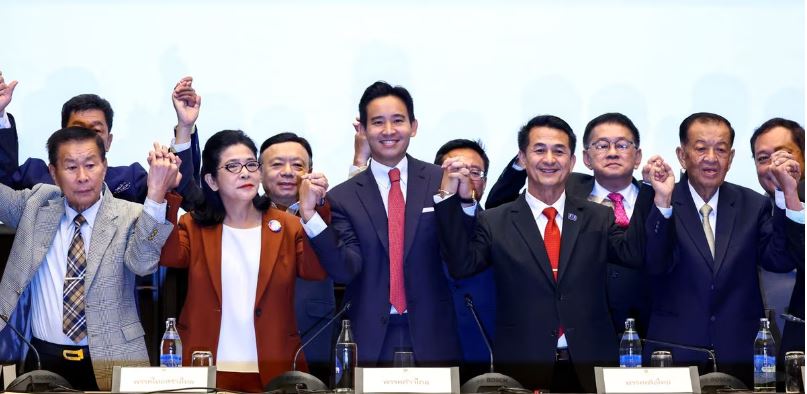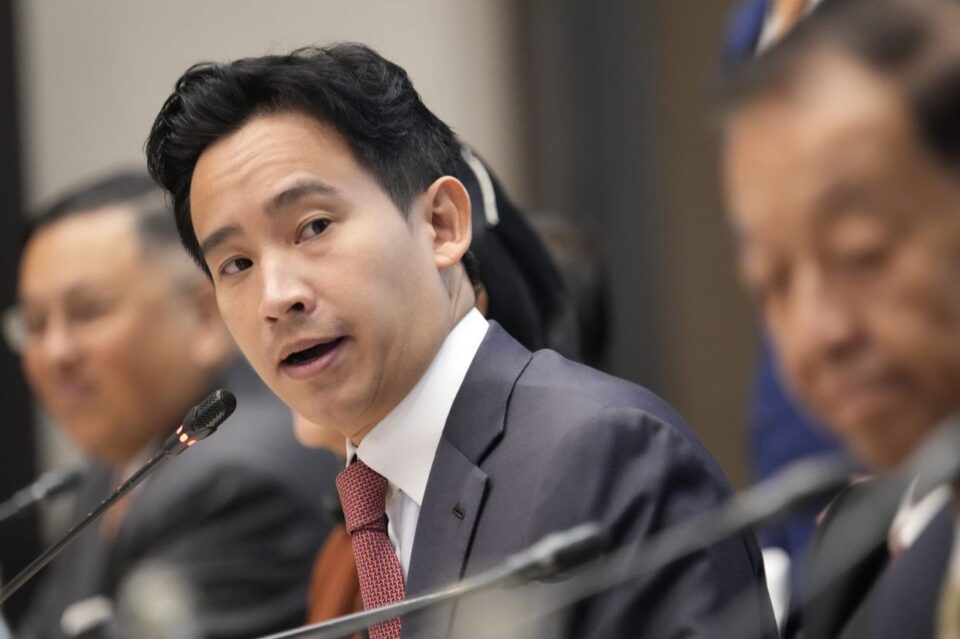As it looks to secure the support of other parties to form a government, Thailand’s progressive Move Forward party said on Friday (May 19) that prospective coalition partners do not have to agree with its contentious position on altering the royal insult law.
In this week’s election, Move Forward, led by Pita Limjaroenrat, won the most seats in the lower house thanks to a surge of support from young voters for initiatives including dismantling corporate monopolies and modifying the draconian lese-majeste legislation, or article 112 of the criminal code.It is not a requirement for joining the government, senior Move Forward party member Sirikanya Tansakun stated on a morning talk show, adding that the party would independently introduce the amendment in parliament if other parties support it.

On Monday, a coalition agreement is anticipated to be revealed.
The lese-majeste legislation stipulates a maximum sentence of 15 years in prison for alleged offenses against the monarchy, which many Thais regard as sacred. However, critics claim that since 200 people have been charged in recent years, the statute is being exploited to repress dissent.
Move Forward aims to change the law to shorten prison sentences and limit those who can file complaints to the Royal Household Bureau alone.

In the 750-seat bicameral legislature, Move Forward’s eight-party coalition discussions have received 313 votes, but to form a government under the military-drafted constitution, it will require the support of either the unelected, conservative-leaning senate or other parties.
A crucial vote bloc leader and third-place finisher, the Bhumjaithai party, declared that it would not back any prime minister who would change the lese-majeste law.According to analysts, refraining from imposing its lese-majeste stance on other parties may increase support.
The pressure on the government parties to support the alliance has decreased dramatically, according to political scientist Wanwichit Boonprong of Rangsit University.
Cannabis usage was another contentious issue; it was legalized last year without any accompanying laws, which sparked an increase in recreational use and infuriated conservatives.
Before establishing a legal framework allowing for medical and controlled recreational use, Move Forward claimed it would re-criminalize the drug.We favor medical marijuana, and recreational usage ought to be controlled, says Parit Wacharasindhu, a newly elected lawmaker for Move Forward.




